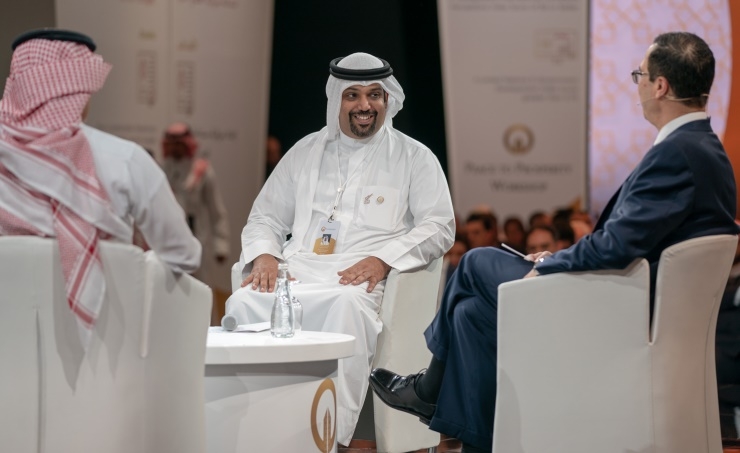‘Conflict complicated, still very much solvable’
The Peace to Prosperity workshop concluded yesterday following two days of discussions, which focused on bringing economic prosperity and opportunity to the Palestinian people. The second day sessions included discussions about a range of issues, including the need for workforce development, job creation, and infrastructure expansion driven by the private sector and international organisations. A varied group of international investors and government leaders spoke about the necessary conditions for the success of the plan laid out by the White House.
One panel focused on economic development needs in the region. Christine Lagarde, Managing Director of the International Monetary Fund, and Mohammed Al Shaikh, Minister of State for the Kingdom of Saudi Arabia, emphasised the need to engage with the fast-growing youth population, which faces high rates of unemployment, and Lagarde called women the workforce’s “secret weapon”. World-class business leaders including Khalid Al Rumaihi and Daniel Mintz then joined infrastructure specialists in a conversation to discuss the environment needed for investments to occur.
They noted that investments are more likely in areas where physical safety and stability are present, and the rule of law is firmly embedded in society. Business leaders who are confident of the business environment will ultimately make much-needed, critical investment, they said. A conversation on strengthening the workforce through women’s empowerment followed, featuring important voices such as Hala Al Ansari of Bahrain, Dina Powell, Ambassador Josette Sheeran, and Reem Fawzy, a successful Egyptian entrepreneur. A dialogue between White House Senior Advisor Jared Kushner and Former British Prime Minister Tony Blair highlighted the importance of engagement between global leaders and regional stakeholders.
The final panel session of the workshop featured a discussion between the United States Secretary of the Treasury, Steven T Mnuchin, and the Ministers of Finance of Bahrain, Saudi Arabia, and the UAE on the conditions and mechanisms required to generate economic transformation. Taking the Gulf region as an example, Bahrain’s Finance Minister, Shaikh Salman bin Khalifa Al Khalifa commented that all three Gulf nations represented on the panel had successfully diversified their economies by creating the right conditions for businesses to thrive while repositioning the government as a regulator and partner with the private sector.
On the sidelines of the event, The Foreign Minister of Bahrain said the Kushner plan was an “opportunity not to be missed.” He reiterated the need for a two-state solution, which has underpinned every peace plan for decades. “I think if we take this matter seriously it could be a very important game-changer,” Shaikh Khalid bin Ahmed Al Khalifa said.
Related Posts

